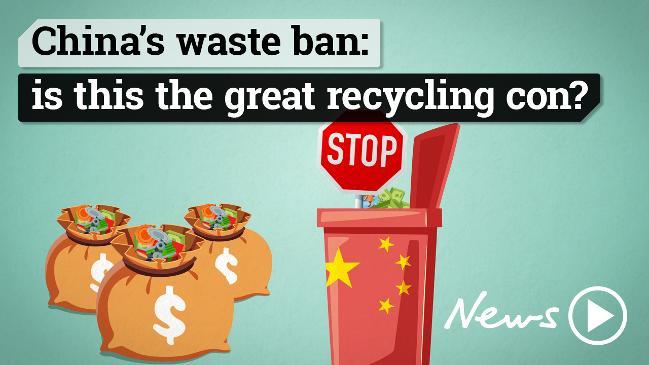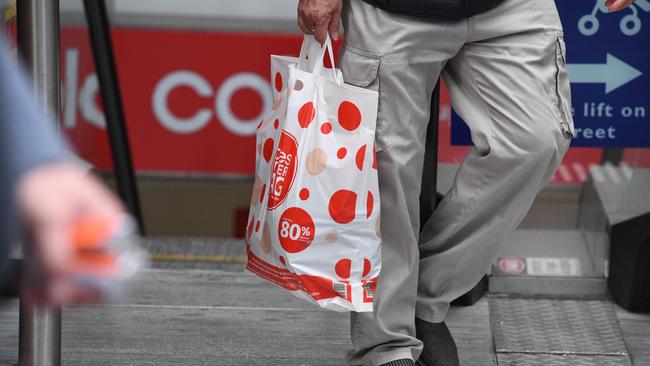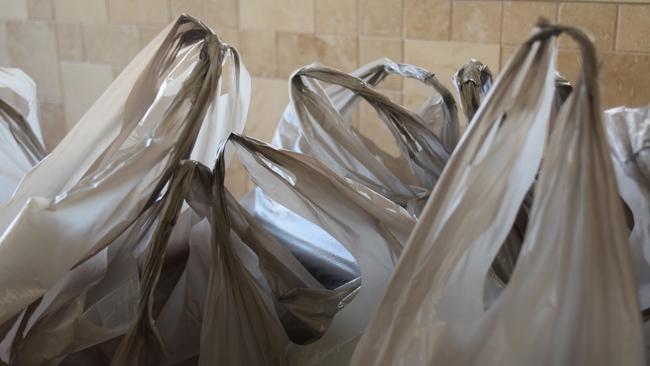Andrew Bolt: Why supermarket plastic ban isn’t quite in the bag
WELCOME to the new green world, where you’ve just been given one more shopping task by Coles on top of dragging around your new reusable shopping bags, writes Andrew Bolt.

Andrew Bolt
Don't miss out on the headlines from Andrew Bolt. Followed categories will be added to My News.
WELCOME to the new green world, where you’ve just been given one more shopping task by Coles.
No, I don’t mean that you must drag around your new reusable shopping bags now that the free “single-use” ones are banned.
Your new job is to wipe down your reusable bag with disinfectant after every shopping trip.
COLES, WOOLIES’ CRAZY MOVE ON PLASTIC BAGS
That’s what the label on the Coles bag says, right next to “Made in Germany”: “Disinfect and wipe after use.”
Maybe Coles is just overcautious — desperate not to be sued by some mainchancer with the trots.

Or maybe Coles takes seriously the research showing that bags used repeatedly to carry food tend to accumulate the bacteria that give you food poisoning.
But, if so, here’s more evidence that this bag ban has been imposed with an exaggerated care for turtles but little for humans. You see, Coles would have you wiping bags with disinfectant (how does that help the planet?) but Woolworths would rather you didn’t clean them much at all.
THE REAL LOSERS IN THE BAN ON PLASTIC BAGS
One of its own green “reusable” bags has a very different warning on the tag, right next to “Made in China”.
“Do not wash,” it says. And don’t even think of just dabbing it with a disinfectant.
“Wipe lightly with clean dry cloth only. Do not wet.”
So, to disinfect or not to disinfect? If the two retail giants can’t agree on that basic safety message, what other rubbish are they telling shoppers about their bag ban?
Well, here’s a short list.

No, the now banned free bags were not “single-use” at all. An RMIT University study showed two-thirds were used again, often as bin liners.
No, the thicker “reusable” bags are not better for the environment. Being thicker means they took more energy to make, generating more global warming gases, and they will also take much longer to break down.
No, the ban will not save thousands of turtles, birds and whales. A Productivity Commission report said the environmental gains had been exaggerated, and the Helmholtz Centre for Environmental Research says about 90 per cent of the plastic in the sea actually comes from just 10 rivers — eight in Asia and two in Africa.
Hmm. So how a bag ban in Australia stop Chinese from throwing plastic into the Yangtze?
That’s something to think about as we scrub our new bags with Dettol.
Originally published as Andrew Bolt: Why supermarket plastic ban isn’t quite in the bag
